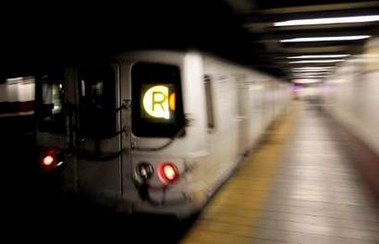|
New York transit union reaches tentative deal with MTA
(AP)
Updated: 2005-12-28 11:49
The union representing city transit workers has reached a tentative agreement
with the Metropolitan Transportation Authority, five days after it ended a bus
and subway strike that paralyzed the city during the holiday season, an MTA
spokesman said.
The executive board of the Transport Workers Union was meeting Tuesday night
at its Manhattan headquarters to discuss the tentative agreement and was
expected to make a statement later.
MTA spokesman Tom Kelly said the deal had to be ratified by the union's
executive board, its membership and the MTA's board of directors. He did not
have details of the tentative agreement.
Negotiators for the 33,700-member Transport Workers Union and the MTA agreed
to resume contract talks after the union went back to work. Some published
reports said the union and the MTA negotiators were close to a deal on Tuesday,
but both sides declined public comment at the request of a state mediator.

A Metropolitan Transit Authority (MTA) R-train
streaks through the Canal Street subway station in downtown New York
December 23, 2005.[Reuters] | A mediation panel led by Richard Curreri suggested last week that the union
could resolve its contract issues with the MTA by agreeing to contribute more to
health care in exchange for retaining its pension plan.
Union president Roger Toussaint fiercely opposed an MTA proposal of less
generous pension benefits to new employees and had sought 8 percent raises for
each of three years. The MTA first had offered 9 percent in raises over three
years but increased the offer to 10.5 percent last week before the union decided
to go on strike.
John Mooney, a member of the executive board who was opposed to ending the
three-day strike, arrived at the union's headquarters for Tuesday's scheduled
meeting but said he wasn't sure he would be asked to vote on a deal. He said he
opposed any proposal that would ask union members, who currently pay no health
care premiums, to contribute to the health plan.
"We've got a billion-dollar surplus," Mooney said, referring to the MTA's
budget. "It'd be outrageous for us to even start attempting to give back."
The MTA passed a budget that spent much of its unforeseen surplus on
underfunded pension plans and security improvements. The agency had said the
money was a one-time surprise due to unexpectedly high proceeds from real estate
taxes and unusually low interest rates and predicted its deficits would balloon
to nearly $1 billion (euro840 million) in 2009.
Mayor Michael Bloomberg went so far as to characterize the extra money as
"mythical" because most of it is essentially tied up.
The union's executive board called the strike at 3 a.m. December 20 and voted
to return to work without a contract three days later. The union's contract
expired December 16.
The shutdown of the nation's largest public transit system forced millions of
daily subway and bus riders to walk, bike or squeeze aboard packed commuter
train lines in the freezing cold to get around the city at the height of the
holiday shopping season.
The mayor said over the weekend that businesses lost $1 billion (euro840
million) in revenue over the strike and that the city lost tens of millions of
dollars in tax revenue and overtime expenses.
|